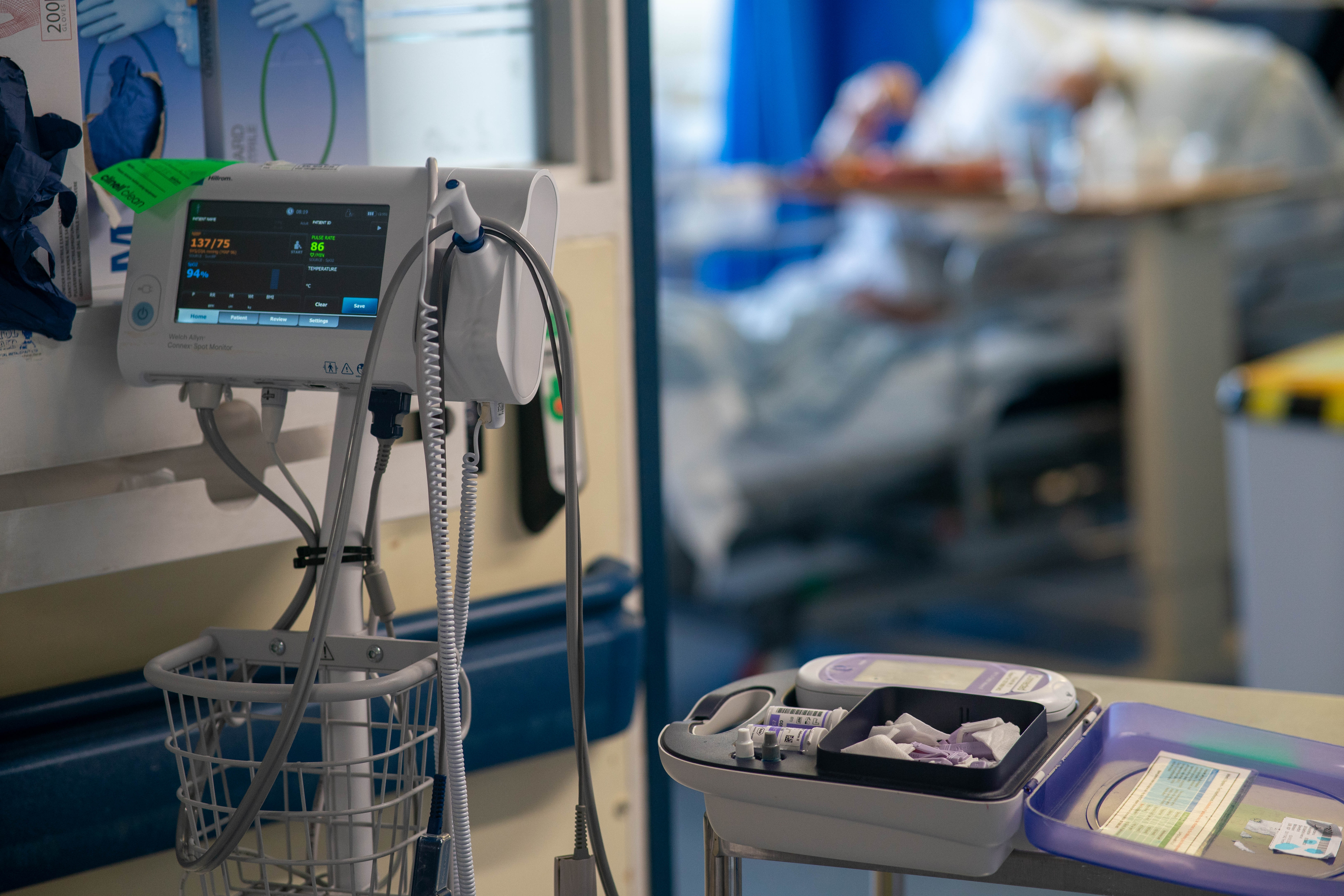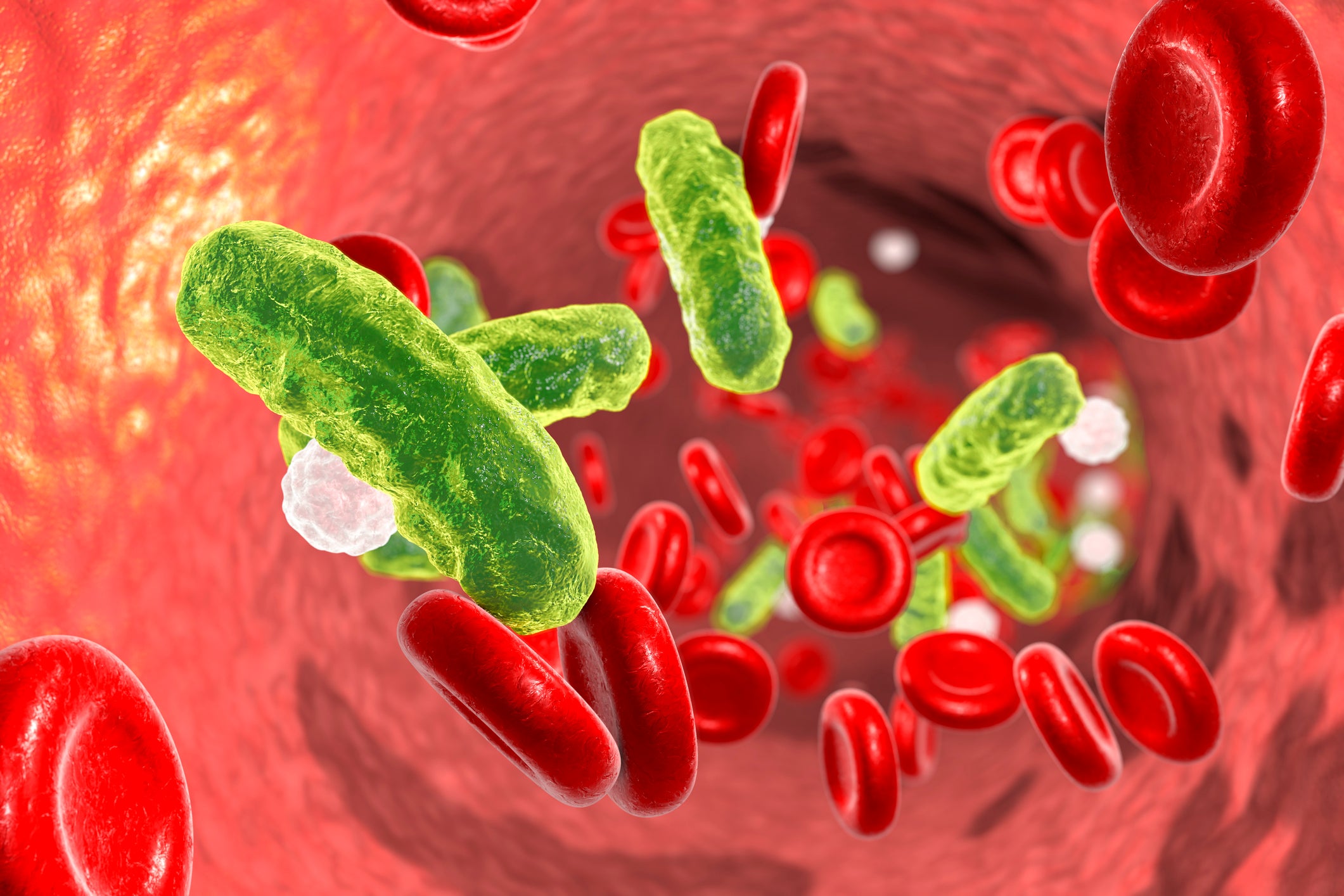Sepsis breakthrough as blood test trial for killer condition underway
According to the Global Sepsis Alliance one person dies from sepsis every three to four seconds.

Your support helps us to tell the story
From reproductive rights to climate change to Big Tech, The Independent is on the ground when the story is developing. Whether it's investigating the financials of Elon Musk's pro-Trump PAC or producing our latest documentary, 'The A Word', which shines a light on the American women fighting for reproductive rights, we know how important it is to parse out the facts from the messaging.
At such a critical moment in US history, we need reporters on the ground. Your donation allows us to keep sending journalists to speak to both sides of the story.
The Independent is trusted by Americans across the entire political spectrum. And unlike many other quality news outlets, we choose not to lock Americans out of our reporting and analysis with paywalls. We believe quality journalism should be available to everyone, paid for by those who can afford it.
Your support makes all the difference.Scientists are hoping a new 45-minute blood test can quickly identify sepsis before it kills.
Sepsis is a life-threatening reaction to an infection. It occurs when the body overreacts and starts attacking its own tissues and organs.
The hard-to-diagnose condition kills nearly 50,000 Brits a year more than breast, prostate and bowel cancer combined - with severe cases taking just hours to prove fatal.
Dr Andrew Retter, an intensive care consultant at Guy’s and St Thomas’ NHS Foundation Trust, who is trialling the test told The Times: “If someone comes into A&E and they’re sick, we can spot that early and start treatment early.
“For every hour antibiotics are delayed, people’s mortality goes up by about 7 or 8 per cent if they’ve got sepsis.”

His trialled test can produce results in less than 45 minutes and costs between £20 and £30. Recent studies found that people from the most deprived communities were 80 per cent more likely to develop sepsis compared to people from the least deprived.
Like Alexander Fleming’s discovery of Penicillin, the test was discovered by accident.
Diagnostic experts Volition were investigating how to spot cancer in blood samples when they detected neutrophil extracellular traps (NETs) instead - a DNA molecule which helps stop and trap dangerous infections in the body.
When too many NETs form in the blood it can trigger an inflammation which causes blood pressure to fall sharply and, ultimately, fatal damage to vital organs.
The new test, called Nu.Q NETS, has successfully identified sepsis on frozen blood samples but the trial will now compare bloods of 450 patients who died of sepsis and 50 cardiology patients who shouldn’t have the killer condition.
William, who coughed so hard it made him sick, died in 2014 from sepsis, after a Strep A infection progressed into the invasive Group Strep A disease.
The campaigner told The Times: “A test like this at the point of care in A&E, for example, could remove the uncertainty about sepsis, which presents differently in different people.
“This could give people a chance at life that my son never had.”
Signs of sepsis include pale or mottled skin, lethargy, low urine output, persistent vomiting, not drinking and a high temperature. More information can be found on the UK Sepsis Trust website.
Join our commenting forum
Join thought-provoking conversations, follow other Independent readers and see their replies
Comments